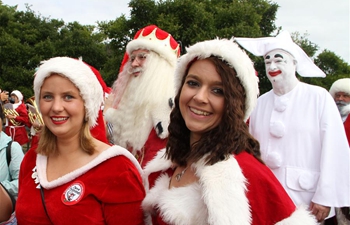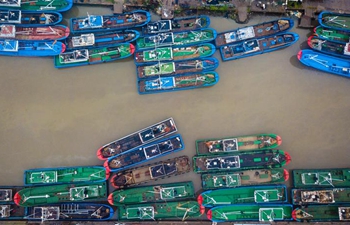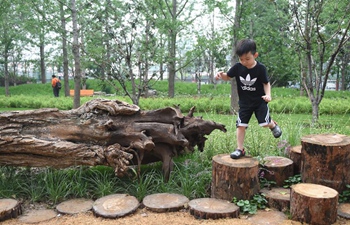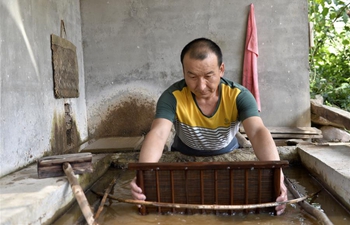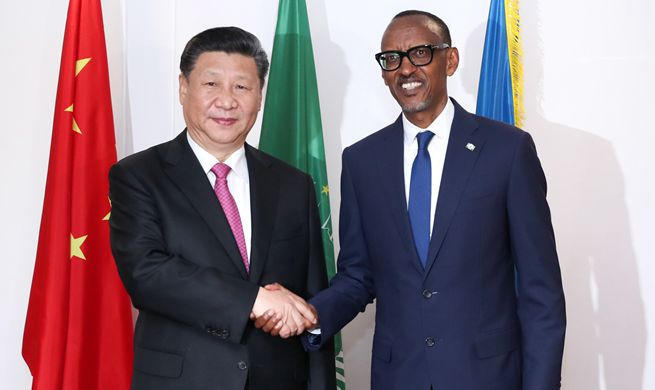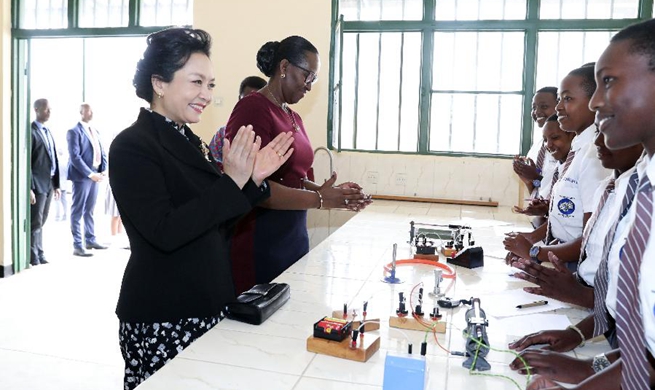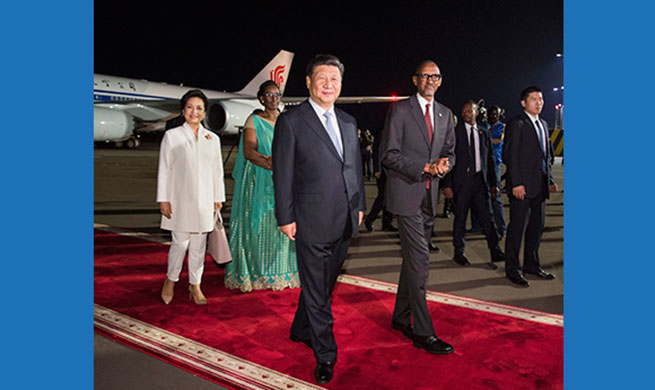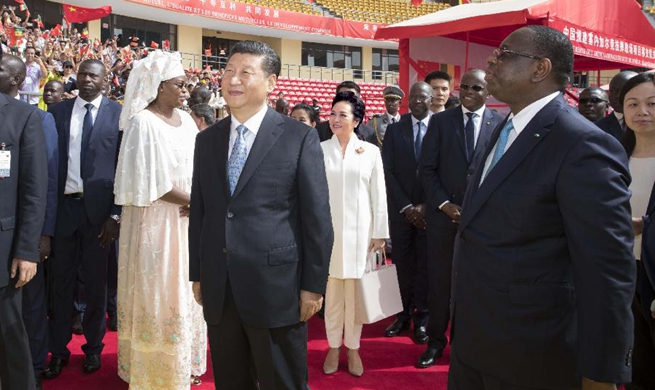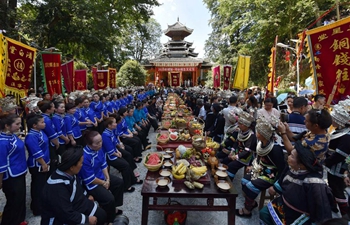by Mohamed al-Azaki
SANAA, July 23 (Xinhua) -- On the western edge of Yemen's rebel-controlled capital Sanaa, around 60 internally displaced families live in a slummy neighborhood and suffer from very rough humanitarian conditions.
The families in old Madhbah quarter are part of more than 35,000 families displaced from war-torn Red Sea port city of Hodeidah since June. More families are fleeing the war everyday, according to the UN reports this week.
The Yemeni government forces backed by the Saudi-led coalition began a military offensive last month to wrest control of the vital Red Sea port city from Iran-allied Houthi rebels.
In old Madhbah quarter, Hadi al-Hajori, a father of nine children, has welcomed two other displaced families of 17 members into his rented home with three small rooms.
"I sold everything to collect money for the travel spending ... and I rent this house for 20,000 riyal (nearly 50 U.S. dollars) a month," the 47-year-old vegetable vendor told Xinhua.
Al-Hajori family arrived in Sanaa three weeks ago. They were received by rebel-controlled local authorities and were accommodated in a tent in the backyard of a school dedicated for the displaced families in southwestern Sanaa.
But, he said, the classrooms were full of other families and the small tent could not hold his big family and therefore, like other displaced families, he moved to old Madhbah area.
Fattom, al-Hajori's wife, said she wants peace and hopes to return to their hometown very soon. "We fled our home near Hodeidah airport to escape the war, and finally found ourselves live a vagabond life," said Fattom.
"They gave some food and mattresses to the displaced families in the schools only, but we have not received yet any humanitarian aid," she said.
"They (authorities) said they will phone us ... but they didn't," she added in a sad voice while throwing dirty plastic bags into a small fire between two rocks to cook their lunch.
The UN Office for the Coordination of Humanitarian Affairs reported this week that only six public schools in Sanaa have been dedicated for receiving and accommodating the displaced families.
"The schools are due to reopen in few weeks, as discussions and assessments are underway to move the IDPs to the Olympic Center dormitory in the capital," it said in its recent report.
Fattom complained about cold and rain. "We need clothes and blankets for the children ... when my child gets sick, I don't know what to do ... we have no medicine or money to go to the hospital," Fattom said.
"We were comfortable in our home in Hodeidah, but endless war, missiles, artillery and airstrikes changed our fate and turned us into beggars," she said.
When temporary peace was reached in the city, residents took the chance to sell some of their belongings and flee, fearing that the UN-brokered peace negotiations could collapse.
The fighting, however, in the western coast and south of Hodeidah airport has been raging on.
On June 13, the Yemeni government forces backed by the Saudi-led coalition began an all-out offensive to retake the strategic port city.
Earlier this month, the United Arab Emirates, which also led the coalition operations, declared a pause in the military operations inside the intensely populated Hodeidah city to support the UN envoy's peace efforts, which is aimed at convincing the rebels to withdraw from the city to avoid military confrontations.
The UN office said Hodeidah seaport is operational, but roads leading to Hodeidah airport, seaport and the Houthi-controlled main road linking Hodeidah with the capital Sanaa remain blocked by sand and concrete barriers.
It said that most of the displaced families were heading to Sanaa and Ibb province.
On July 10, the UN special envoy for Yemen, Martin Griffiths, met the internationally recognized President Abdu-Rabbu Mansour Hadi in his office in the southern Yemeni port city of Aden to push for resuming stalled peace efforts with his government's foe Houthi rebels.
Griffiths' visit came a week after he met Houthi leader Abdul-Malik al-Houthi in Sanaa. Griffiths said the discussion was "fruitful."
Humanitarian agencies have warned that any military attack on the port could lead to the world's biggest humanitarian catastrophe in modern history.
Hodeidah is the single most important point of entry for food and basic supplies to Yemen's northern provinces controlled by Houthis, including the capital Sanaa.
The rebels stormed Sanaa, Hodeidah and other northern populated cities in late 2014 and forced President Hadi and his government into exile in Riyadh. They said their move was a revolution against alleged government corruption.
The coalition intervened in Yemen's conflict in March 2015 to roll back the Iran-allied Shiite Houthi rebels and reinstate exiled government of President Hadi.
"I want peace for my children," the desperate mother Fattom said.




